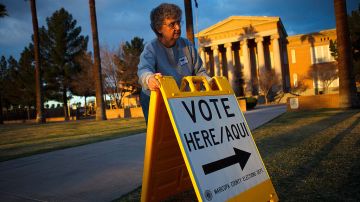Editorial: Two Different Visions
The Republican and Democratic national conventions highlighted the usual ideological differences between conservatives and liberals.

Crédito: Jonathan Gibby | Getty Images)
What has been unusual during this election cycle is the contrast between how both parties perceive the present, the basis for building the future. Those are the two visions that voters have in front of them.
The Republican National Convention was dominated by Donald Trump and his family, who did not seek the middle ground that would have been more attractive for the average voter than for the party base. The billionaire once again bet on the resentment and fear that mobilized a segment of whites with lower income and less formal education—a group that refuses to accept demographic, economic and social changes.
An apocalyptic vision of the Obama administration, driven by extremists in Congress and by the Tea Party, is the present of those who live in an ideological bubble. Trump needs that same vision in order to present himself as the country’s only possible savior.
Democrats navigated between defending the present and backing the need for change. The much-mentioned Reagan-style optimism apparently switched parties. The vision of an individual with potential for growth contrasts with that of a person who has been cornered and needs someone to say something and rescue them from danger.
There was also a huge difference in the way that internal dissent was handled. Trump silenced dissidents with rules and ended the convention with threats to harm two of his former primary rivals during the next election. On the other hand, Democrats did everything they could to attract Bernie Sanders’ supporters.
Sadly, both in Cleveland and Philadelphia, the conflict between the police and communities of color became politicized in such a way that neither party called for tackling the problem together. There won’t be a solution if ideology takes over an issue of communication.
This is a very different election year. The significant absence of major Republican figures during the convention reflects that Trump isn’t a candidate who represents Republican ideology. That is an advantage for Democrats in attracting voters who don’t share the optimism of the party in the White House, but who are even further from Trump’s personal attacks and vision.




